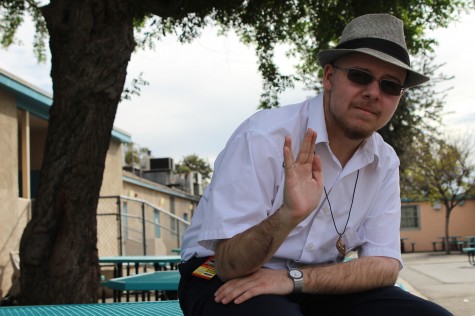Schools threatened if propositions don’t pass

As the Nov. 6 election approaches, votes will have plenty of propositions on the ballot. The two that will affect schools the most are Propositions 30 and 38, both of which would give extra funding to California schools.
If neither of these measures passes, the effects could be drastic for the Los Angeles Unified School District (LAUSD). The school year would end 15 days earlier and teachers would rush to get everything in. Advanced Placement (AP) tests would also be affected since students would have to leave school without their books and then return after the end of the school year to take the AP test.
LAUSD Superintendent John Deasy held a press conference for student journalists at Ambassador High School in downtown Los Angeles on Sept. 13 to focus on Propositions 30 and 38 and the effects of their passing, or lack thereof.
“I can’t tell you how to vote,” Deasy said. “I can only tell you what will happen if these measures pass or not.”
First, Deasy gave a background on why propositions 30 and 38 are in place. Proposition 98, passed in 1988, determined how much money schools get. The schools in LAUSD normally get $5,200 per student. Deasy put this into perspective by saying that schools in the Northeast receive $18,000 to $21,000 per student.
But, for the last few years, LAUSD schools haven’t received the entire $5,200. Instead, they’ve only been given $3,800. The state then writes them an “I.O.U.” for the other $1,400. So far the state owes LAUSD $1 billion in “I.O.U.s”.
He then explained how both propositions work. Prop. 30 was put in place by Gov. Jerry Brown. It would raise both individual and sales tax. Individual tax is what people pay every year in April. It would be in place for nine years and the money’s first job would be to pay back the $1 billion in
“I.O.U.s”. This would take place over the first three years. The next six years would show some change money wise in LAUSD. The money would not start coming into LAUSD until 2013, however.
Prop. 38 was put forth by California attorney Molly Munger. It also involves taxes, but is income based. That means that the wealthy pay more taxes and the middle class pay less. If passed, Prop 38 would go into effect immediately.
“It would be great if both could pass, but that can’t happen,” Deasy said.
Both propositions cannot pass because there are items in both that would mess up the other if they were both passed. This phenomenon is known as the “poison pill.” Deasy did not mention what items in the propositions would “poison” the other.
“If 30 passes, we stop the pain and we get some new money,” Deasy said. If 38 passes, we get new money, but the pain continues.”
Deasy also talked about what would happen if neither proposition were to pass. Schools would have to close even earlier, pushing the last day back to April. This means that teachers and students would have even less time to get the required curricula in. This will, over time, adversely affect graduation rates.
Another victim of the possible shortening are Advanced Placement, or AP, classes. AP tests are always in May. This means that students taking AP courses would have to leave school, return their textbooks, then come back to take the test in May. If the cut actually happened, Deasy said that LAUSD would have to open some sort of testing center for the students.
“We have a dramatic number of students taking AP classes and a dramatic number of students passing the AP tests,” Deasy explained.
Deasy also touched upon summer schools. He mentioned how three summers ago, LAUSD spent $48 million on summer school, but this past summer they only spent $800,000.
“That’s just immoral,” Deasy said.

Chris Bower is the Online Editor-in-Chief of The Pearl Post. Chris has been on staff for three years, starting as Tech Editor and then becoming Features...

